A Comprehensive Guide to Contract Recruitment: What it is and How it Works
Whether you’re looking for your next role or hiring your next employee, you might have considered contract recruitment as an option. With over 1 million contractors in Australia (source), it’s a popular way of working. So, what does it involve and how is it different from other working arrangements?
This comprehensive guide will go into all the details of contract recruitment; its benefits, challenges, and best practices. We’ll cover everything you need to know before contracting or before hiring and managing contractors. We also speak to Amy Watson, Senior Consultant – Project Services in Brisbane, to get further insights into contract recruitment in the current market.
What is Contract Recruitment?
Contract recruitment is a hiring process where individuals are hired for a specific period or project. Unlike permanent roles, contract workers are not full-time employees and are engaged as independent contractors. Simply put, contractors are self-employed and sell their services to clients (source).
This arrangement offers numerous benefits for both employers and contractors. Contractors have flexibility in how they work and can take on multiple clients, and they are responsible for their own taxes, superannuation, and insurance. From a hiring perspective, employers have more flexibility, scalability, and adaptability working with contractors.
Key Differences Between Contract and Permanent Recruitment
Contract and permanent recruitment are two completely different ways of hiring. Contract recruitment involves hiring individuals for a specific period or project, while permanent recruitment focuses on hiring employees for long-term positions within an organisation. huhjnm
| Contract Recruitment | Permanent Recruitment | |
|---|---|---|
| Duration of Employment | Fixed-term | Indefinite |
| Recruitment Focus | Short-term projects and immediate needs | Long-term organisational growth |
| Compensation | Hourly or daily rates | Annual salary with potential benefits |
| Benefits | Flexibility, higher potential earnings, varied projects | Job security, career development, company benefits |
The Benefits of Contract Recruitment
As we’ve already touched on, there are so many benefits to contract recruitment for both contractors and employers.
From a contractor’s perspective, Senior Consultant at Emanate Technology, Amy Watson, shared that, “if you don’t require the security of a permanent role then contracting is amazing. It offers flexibility, variety and the ability to work on a whole range of projects with a lot of different people. It’s a great way to stay up-to-date with new technologies and as a bonus – also has higher earning potential”.
As Amy highlights, the key benefits to contracting include; flexible working (and can involve multiple concurrent projects), less long-term commitments, and generally higher pay when compared to permanent contracts. Some companies also offer additional benefits to contractors, for example, Emanate Technology have a rewards program, ‘Emanate Rewards’, which gives contractors access to discounts of up to 15% at over 500 retailers within Australia.
The key benefit to hiring contractors is also the flexibility. As Amy stated, “contractors bring specialised, current skills to a role and can often get started a lot quicker than permanent employees. It’s a great way to bring in expertise that you might not have in house especially when you need to get a project completed ASAP.” Further to this, when you recruit contractors, you generally reduce overhead costs and minimise risk as there is less investment required.
If you choose to recruit a contractor, you can gain access to specialised talent and skilled experts for specific projects. However, most companies find sourcing and recruitment challenging in the current market. Amy suggested that those companies should consider working with a recruitment agency because, “agencies streamline [the hiring] process by managing the time-consuming tasks of sourcing, vetting and finding candidates that fill the gaps in a project. Agencies also handle all of the administrative tasks like payroll, contracts and compliance allowing our clients to focus on the project at hand. Plus, agencies know what the market is like and can find the right person faster so that they can hit the ground running.” Whether you decide to hire a contractor internally or partner with a recruitment agency to support, there are clearly many benefits to contract recruitment.
How to Hire a Contractor
There are two primary ways to hire a contractor: in-house or through a recruitment agency. In-house recruitment involves sourcing and screening candidates, conducting interviews, and managing the hiring process internally. This approach offers greater control but can be time-consuming. Alternatively, you can partner with a recruitment agency that specialises in contract recruitment in your industry. Recruitment agencies have access to a wider pool of talent, can handle the entire recruitment process, and can provide insights into market trends and candidate availability.
The Contract Recruitment Process
Here’s an overview of the complete recruitment process, from beginning to end:
- Identifying business needs: Pinpointing the specific roles that require contractors.
- Advertising and sourcing: Developing clear and concise job descriptions, highlighting the contract nature of the role, then promoting the role (generally via online channels and job boards). Further utilising those channels and existing networks to source qualified candidates.
- Candidate screening: Reviewing resumes and conducting initial screening interviews to find suitable candidates.
- Candidate interviews: Conducting in-depth interviews to assess candidates’ skills, experience, and cultural fit.
- Contract negotiation: Negotiating contract terms, including compensation, benefits, and duration.
- Onboarding: Providing necessary information and support to ensure a smooth onboarding process.
- Ongoing administration: Staying updated with relevant employment laws and regulations to ensure compliance. Also, ensuring timely and accurate payment processing, including invoicing and expense reimbursement.
- Performance monitoring: Monitoring the performance of contract workers and providing feedback.
- Contract Termination: Ending the contract professionally and handling any necessary paperwork. If applicable, managing contract renewals and extensions.
How to Work as a Contractor
To establish a successful career as a contractor, you must first build a strong professional network. Attend industry events, connect with professionals on LinkedIn, and participate in relevant online communities. Identify potential clients in your industry and pitch your services, highlighting your skills and value proposition.
Amy provided further advice to those wanting to start contracting, “building a strong professional network is critical. It also helps to have a niche. If you can specialise in something that is in demand like cloud, data or cyber – you will stand out. Work on getting some solid certifications and target clients and recruiters active in that market”.
While some contractors are great at pitching themselves to clients, others prefer to work with recruitment agencies to access a wider range of projects they wouldn’t normally attain on their own. Contractors also like working with a recruitment agency because of the various pay options and the additional support and benefits you can receive. Amy shared that, “our contractors are working on some exciting projects. From healthcare to transport to elections and biosecurity, we constantly see their contracts getting extended, adding value and continuously being amazing. One of my favourite parts of this role is connecting clients and candidates who love what they do!”.
Once you secure contract work, it’s also important to manage your finances responsibly. Set up a separate business bank account, track your income and expenses, and consider hiring an accountant for tax and financial advice.
Choosing the Right Contract Recruitment Agency
When selecting a contract recruitment agency, consider several factors to ensure a successful partnership. Firstly, look for an agency with a proven track record in contract recruitment. It’s also ideal to choose an agency with deep knowledge of your specific industry to guarantee a better understanding of your unique needs. Effective communication is also crucial, so look for an agency that can maintain open and transparent communication throughout the recruitment process. Lastly, find out if you get a dedicated account manager or recruiter, as they can provide personalised support and guidance, making the process smoother and more efficient.
By understanding the nuances of contract recruitment and by working with a reputable agency, you can effectively meet your business needs. If you are looking to hire tech contractors in the future and want to speak to the experts first, contact us today. Alternatively, if you’re looking for work as a tech contractor, you can learn more here.






